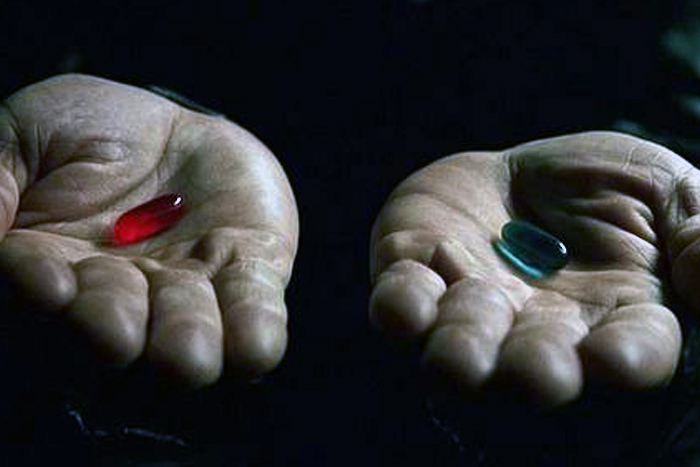
Perhaps this is the most vulnerable point of our faith. The opponents of Christianity love to muzzle us with this question, while we are left with the sole possibility of turning the other cheek. What I’m talking about is how to explain the suffering of innocent people…
It is clear that when hardened sinners suffer, “they are punished for their sins” — this is how we usually explain it to ourselves, although it is wrong, for God does not punish them but nudges them to repent. It is merely an attempt made by God to catch their attention. When you can’t handle the problem yourself (and other people obviously can’t help), the only way is to turn to the wiser and stronger One. While the suffering of sinners is more or less easy to understand, the suffering of innocent people raises a serious question – why? Why do babies suffer from terrible diseases? Why does God allow different pedophiles and maniacs to do such horrible things to people? Why do good and kind people have to get into the meat grinder of war? There are many other such questions you could ask the “God of Love”…
Hinduism is clear and logical about it. In their religion, there is a single iron-clad answer to all such questions – if a person suffers in this life for no apparent reason, it means that he seriously screwed up his previous life. Now he has to fix his karma so as to be fine in his next life. However, we cannot borrow such a convenient explanation from Hindus – we do not believe in reincarnation. We believe that it is appointed unto men once to die, but after this the judgment (Hebrews 9:27).
Nevertheless, Hindus are right in one respect: it is impossible to evaluate any patterns in human life, if you take it out of context. Unfortunately, Hindus are looking for the answer in the wrong place.
Our lives are indeed closely connected with other lives, but not with our past and future incarnations. They are interconnected with the lives of our loved ones: ancestors (primarily parents), siblings, and children. A while ago we mentioned the fact that all human beings are one organism, one body. The fact that we do not feel it now does not mean that it is not the case, that this natural connection between people is broken. After all, when we fall ill, we do not just have a bowel or heart disease – the whole organism is ill, but for some reason the disease appeared here or there. Thus, our outrage about the suffering of the innocent is due to the fact that we do not see the bigger picture. It is as if we pick up a book and read one chapter from the middle, and then wonder why such unjust things happen to the main character without taking into account both the background of the story and the impact of the events we’ve read about on the subsequent storyline of the book. What if, for example, one person’s suffering is meant to teach his or her loved ones to become compassionate? “What a callous way of looking at things!” you may exclaim in outrage. “What about the poor victim? What does he or she get in return?” Only God and the sufferer know what he or she gets in return for his or her suffering. Surely God will not leave them without comfort, just as He comforts the woman who is about to give birth, while she is screaming in agony or even cursing (something like: “Bastards, hurry up and pull the baby out!!!”). Over time, her pain subsides, and the woman smiles because her baby is looking at her. At that moment, the mother understands what she had to suffer for, and most importantly – that it was worth it (cf. John 16: 21).
I’ve said that our life is not connected with our past and future incarnations. This is true but not entirely.
We can agree with the Hindus on one more point: our present life is connected with our future life — not with our new earthly incarnation, but with our future eternal life. Do you remember such concepts as “a straight line,” “a ray,” and “a line segment” from the school geometry course? A straight line is a line with no beginning and no end, a ray has a beginning but no end, and a segment has both a beginning and an end. So we think of human life as if it were a segment, but in fact our life is a ray. The period of life that we spend living on earth is only a short stretch of time preceding the eternal life; it is the beginning of the ray. Thus, we cannot find a clear answer to the question “Why?” while still on “this side” of our life. All the answers are “there” at the end of the book.
There is no one kinder than God in the world,
But then why is our world in trouble?
All men ask the Creator for an answer,
He will answer. Will we understand it?
(Ilya Selivanov)
Somebody has suggested another analogy. When you look at what’s happening in the world, you can only see the inside of the gold embroidery – it’s some kind of a mess of rough stitches, which looks very crazy (embroidery used to be my hobby at the seminary, so I can attest to it).
Only when we get “there”, will we be able to see the front side of the embroidery, and then everything will become clear to us. Christ also says about it, And ye now therefore have sorrow: but I will see you again, and your heart shall rejoice, and your joy no man taketh from you. And in that day ye shall ask me nothing. Verily, verily, I say unto you, Whatsoever ye shall ask the Father in my name, he will give it you. (John 16:22-23).
Roughly the same is said in the Book of Revelation, And God shall wipe away all tears from their eyes; and there shall be no more death, neither sorrow, nor crying, neither shall there be any more pain: for the former things are passed away (Rev 21:4).
This is an excerpt from the book by Deacon Ilya Kokin Fear Builds Walls, Love Builds Bridges (Nicaea Publishing House, 2018)
Translated by The Catalogue of Good Deeds
Source: https://foma.ru/chto-otvetit-ateistam-na-ih-koronnyiy-argument.html




The problem with the question atheists pose — it appears in many different formulations, such as If God is good, why is there evil? — is that it instantly demands the counter-question — If there is NO God, then why do you think of anything as bad or evil? Or, for that matter, good?
Or in other words, for this specific instance, why do you think a baby suffering is any different from an ant getting stepped on, or a cute little bunny rabbit getting torn to shreds and eaten by a fox?
If there is no God, there IS nothing by which to measure good or evil, nothing but your own feelings, which are meaningless churnings of chemicals in your brain.